Fleurs du Mal Magazine


Or see the index
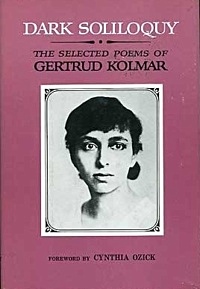
Sehnsucht
Ich denke dein,
Immer denke ich dein.
Menschen sprachen zu mir, doch ich achtet es nicht.
Ich sah in des Abendhimmels tiefes Chinesenblau, daran
der Mond als runde gelbe Laterne hing,
Und sann einem anderen Monde, dem deinen, nach,
Der dir glänzender Schild eines ionischen Helden vielleicht
oder sanfter goldener Diskus eines erhabenen Werfers wurde.
Im Winkel der Stube saß ich dann ohne Lampenlicht,
tagmüde, verhüllt, ganz dem Dunkel gegeben,
Die Hände lagen im Schoß, Augen fielen mir zu.
Doch auf die innere Wand der Lider war klein und unscharf
dein Bild gemalt.
Unter Gestirnen schritt ich an stilleren Gärten, den Schatten-
rissen der Kiefern, flacher, verstummter Häuser,
steiler Giebel vorbei
Unter weichem düsteren Mantel, den nur zuweilen
Radknirschen griff, Eulenschrei zerrte,
Und redete schweigend von dir, Geliebter, dem lautlosen,
dem weißen mandeläugigen Hunde, den ich geleitete.
Verschlungene in ewigen Meeren ertrunkene Nächte!
Da meine Hand in den Flaum deiner Brust sich bettete
zum Schlummer,
Da unsere Atemzüge sich mischten zu köstlichem Wein,
den wir in Rosenquarzschale darboten unserer Herrin,
der Liebe,
Da in Gebirgen der Finsternis die Druse uns wuchs und
reifte, Hohlfrucht aus Bergkristallen und fliedernen
Amethysten,
Da die Zärtlichkeit unsere Arme Feuertulpen
porzellanblaue Hyazinthen aus welligen, weiten, ins
Morgersgraun reichenden Schollen rief,
Da, auf gewundenem Stengel spielend, die halberschlossene
Knospe des Mohns wie Natter blutrot über uns züngelte,
Des Ostens Balsam- und Zimmetbäume mit zitterndem
Laube um unsere Lager sich hoben
Und purpurne Weberfinken unserer Munde Hauch in
schwebende Nester verflochten. –
Wann wieder werden wir in des Geheimnisses Wälder fliehn,
die, undurchdringlich, Hinde und Hirsch vor dem
Verfolger schützen?
Wann wieder wird mein Leib deinen hungrig bittenden
Händen weißes duftendes Brot, wird meines Mundes
gespaltene Frucht deinen dürstenden Lippen süß sein?
Wann wieder werden wir uns begegnen?
Innige Worte gleich Samen von Wurzkraut und Sommer-
blumen verstreun
Und beglückter verstummen, um nur die singenden
Quellen unseres Blutes zu hören?
(Fühlst du, Geliebter, mein kleines horchendes Ohr, ruhend
an deinem Herzen?)
Wann wieder werden im Nachen wir gleiten unter zitronfarbnem
Segel,
Von silbrig beschäumter, tanzender Woge selig gewiegt,
Vorüber an Palmen, die grüner Turban schmückt wie den
Sproß des Propheten,
Den Saumriffn ferner Inseln entgegen, Korallenbänken,
an denen du scheitern willst?
Wann wieder, Geliebter . . . wann wieder . . ? . .
Nun sintert mein Weg
Durch Ödnis. Dorn ritzt den Fuß.
Bäche, frische, erquickende Wasser, murmeln; aber ich finde
sie nicht.
Datteln schwellen, die ich nicht koste. Meine verschmachtende
Seele
Flüstert ein Wort nur, dies einzige:
»Komm. . .«
O komm …
Gertrud Kolmar
(1894-1943)
Gedicht: Sehnsucht
fleursdumal.nl magazine
More in: Archive K-L, Archive K-L, Kolmar, Gertrud
“The staggering thing about a life’s work is it takes a lifetime to complete,” Craig Morgan Teicher writes in these luminous essays.
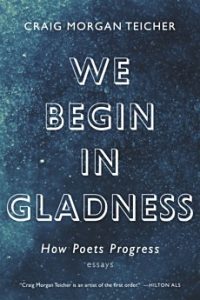 We Begin in Gladness considers how poets start out, how they learn to hear themselves, and how some offer us that rare, glittering thing: lasting work. Teicher traces the poetic development of the works of Sylvia Plath, John Ashbery, Louise Glück, and Francine J. Harris, among others, to illuminate the paths they forged—by dramatic breakthroughs or by slow increments, and always by perseverance.
We Begin in Gladness considers how poets start out, how they learn to hear themselves, and how some offer us that rare, glittering thing: lasting work. Teicher traces the poetic development of the works of Sylvia Plath, John Ashbery, Louise Glück, and Francine J. Harris, among others, to illuminate the paths they forged—by dramatic breakthroughs or by slow increments, and always by perseverance.
We Begin in Gladness is indispensable for readers curious about the artistic life and for writers wondering how they might light out—or even scale the peak of the mountain.
Though it seems, at first, like an art of speaking, poetry is an art of listening. The poet trains to hear clearly and, as much as possible, without interruption, the voice of the mind, the voice that gathers, packs with meaning, and unpacks the language the poet knows.
It can take a long time to learn to let this voice speak without getting in its way. This slow learning, the growth of this habit of inner attentiveness, is poetic development, and it is the substance of the poet’s art. Of course, this growth is rarely steady, never linear, and is sometimes not actually growth but diminishment—that’s all part of the compelling story of a poet’s way forward. —from the Introduction
Craig Morgan Teicher is an acclaimed poet and critic. He is the author of We Begin in Gladness: How Poets Progress, and three books of poetry, including The Trembling Answers, winner of the Lenore Marshall Poetry Prize, and he regularly writes reviews for Los Angeles Times, NPR, and the New York Times Book Review. He lives in New Jersey.
We Begin in Gladness.
How Poets Progress
by Craig Morgan Teicher
Publication Date 11/6/18
Format: Paperback
ISBN 978-1-55597-821-1
Subject: Literary Criticism
Pages 176
Graywolf Press
$16.00
# new books
more info: http://craigmorganteicher.com/
How Poets Progress
fleursdumal.nl magazine
More in: - Book Lovers, - Book Stories, Archive S-T, Archive S-T, Art & Literature News, Sylvia Plath, The Art of Reading
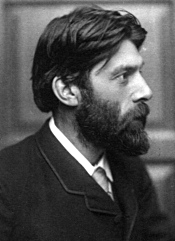
To Joseph Joachim
Belov’d of all to whom that Muse is dear
Who hid her spirit of rapture from the Greek,
Whereby our art excelleth the antique,
Perfecting formal beauty to the ear;
Thou that hast been in England many a year
The interpreter who left us nought to seek,
Making Beethoven’s inmost passion speak,
Bringing the soul of great Sebastian near.
Their music liveth ever, and ’tis just
That thou, good Joachim, so high thy skill,
Rank (as thou shalt upon the heavenly hill)
Laurel’d with them, for thy ennobling trust
Remember’d when thy loving hand is still
And every ear that heard thee stopt with dust.
Robert Bridges
(1844-1930)
To Joseph Joachim
fleursdumal.nl magazine
More in: *War Poetry Archive, Archive A-B, Bridges, Robert
Literary and music group Feest der Poëzie brings a theatrical lecture on the life and work of Oscar Wilde and one of his favorite beverages – absinthe. This Saturday at the Pianola Museum, 8.30 PM.

Immerse yourself in the story of one of the best-loved writers in the English language with prose, poetry, songs and drama by Oscar Wilde and his contemporaries, on a journey through his rise and fall.
Poet and absintheur David Kwa will demonstrate the absinthe ritual and read manifold roles, such as that of the dreaded Marquess of Queensberry.
Daan van de Velde (piano) and Susanne Winkler (soprano) will perform Irish and English art songs, as performing poet Simon Mulder takes on the roles of narrator and Oscar Wilde (indeed, wearing a contemporary pair of silk breeches) in the fascinating story of his life.
Also, Van de Velde and Mulder will bring the very special performance of a long lost work for piano and voice on Wilde’s ‘Ballad of Reading Gaol’ by early 20th century composer Henri Zagwijn.
The Poetry Bar will bring you carefully prepared absinthe, along with a decadent sonnet.
Saturday the 24th of November 2018
venue open: 8 PM
start: 8.30PM
(English spoken)
venue:
Pianola Museum
Westerstraat 116
Amsterdam
Tickets: € 15/12.50
www.feestderpoezie.nl
trailer: www.youtube.com/watch?v=-V6yx3X8rwg
Music, stories, absinthe and more during ‘The Green Hour’ with Oscar Wilde
fleursdumal.nl magazine
More in: # Music Archive, Archive M-N, Archive W-X, Art & Literature News, Literary Events, THEATRE, Wilde, Oscar, Wilde, Oscar
Je zou kunnen zeggen dat Fantoommerrie verder gaat waar Kalfsvlies was opgehouden, maar dat suggereert dat we met een vervolg te maken hebben, en dat is niet zo.
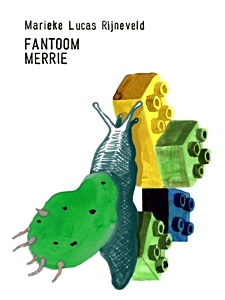 Deze bundel is een nieuwe verkenning in het universum van Rijneveld, dat paradoxaal genoeg aan de ene kant compleet onnavolgbaar is, maar aan de andere kant ook onmiddellijk herkenbaar en altijd eigen.
Deze bundel is een nieuwe verkenning in het universum van Rijneveld, dat paradoxaal genoeg aan de ene kant compleet onnavolgbaar is, maar aan de andere kant ook onmiddellijk herkenbaar en altijd eigen.
Over een oma die onsterfelijk had moeten zijn, het noodlottig einde van een onvoorzichtige kat, over dromen natuurlijk: mooie en lelijke, over bidden om speelgoed, de zithouding van de schrijver – en over voorleesvaders, die lastige vragen krijgen: ‘waar komen kinderen vandaan als ouders nooit kussen?’
Fantoommerrie is een dichtbundel om in te verdwalen, en dan te besluiten om er te blijven.
Marieke Lucas Rijneveld (1991) geldt als een van de grootste talenten van de Nederlandse letteren. In 2015 debuteerde ze met de meermaals herdrukte dichtbundel ‘Kalfsvlies’, die werd bekroond met de C. Buddingh’ Prijs voor het beste poëziedebuut. In ‘de Volkskrant’ werd ze vervolgens uitgeroepen tot literair talent van het jaar.
Haar indrukwekkende voordracht was veelvuldig te horen op literaire podia als Crossing Border, De Jonge Schrijversavond en de Nacht van de Poëzie, en haar gedichten en verhalen verschenen in een groot aantal literaire tijdschriften, waaronder ‘Hollands Maandblad’, ‘VPRO Gids’ en ‘De Revisor’.
Rijneveld groeide op in een gereformeerd boerengezin in Noord-Brabant en woont tegenwoordig in Utrecht, de stad die haar in 2015 het C.C.S. Cronestipendium toekende. Naast haar bestaan als schrijver werkt ze op een melkveebedrijf. Haar debuutroman ‘De avond is ongemak’ verscheen in 2018 en in januari 2019 verschijnt haar tweede dichtbundel ‘Fantoommerrie’.
Marieke Lucas Rijneveld:
Fantoommerrie
Gedichten
Fantoommerrie is de Tweede dichtbundel
van Marieke Lucas Rijneveld.
Wordt verwacht op 24 januari 2019
Bundel is te reserveren bij de boekhandel
Uitgeverij Atlas Contact.
ISBN 9789025453459
Pagina’s 64
Type Paperback / softback
€ 19,99
# new books
Marieke Lucas Rijneveld:
Fantoommerrie. Gedichten
fleursdumal.nl magazine
More in: - Book News, - Bookstores, Archive Q-R, Archive Q-R, Art & Literature News, Marieke Lucas Rijneveld, Rijneveld, Marieke Lucas

Het Wintertuinfestival, dat van 20 tot en met 25 november 2018 plaatsvindt in Nijmegen, gaat dit jaar over de vraag: Wat horen we als we luisteren? Tientallen schrijvers, dichters, wetenschappers, muzikanten en kunstenaars gaan in op dit thema. Zowel grote literaire namen als aanstormende talenten reizen af naar Nijmegen.
20 t/m 25 november: Wintertuinfestival Nijmegen
# meer info wintertuinfestival
fleursdumal.nl magazine
More in: # Music Archive, #More Poetry Archives, - Book Lovers, - Bookstores, Art & Literature News, THEATRE, Wintertuin Festival
Auch hundert Jahre nach seinem Tod ein Geheimnis: Georg Trakl. Rüdiger Görner geht dem Mythos nach.
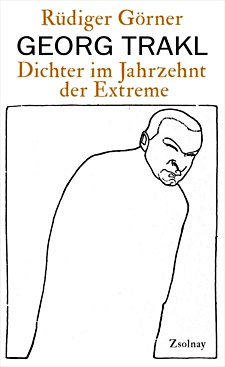 Kurz nach Ausbruch des Ersten Weltkriegs starb Georg Trakl in einem Militärspital an einer Überdosis Kokain. Ob der im Krieg traumatisierte Dichter Selbstmord beging, ist eines der Rätsel, die sein Leben und Werk umgeben.
Kurz nach Ausbruch des Ersten Weltkriegs starb Georg Trakl in einem Militärspital an einer Überdosis Kokain. Ob der im Krieg traumatisierte Dichter Selbstmord beging, ist eines der Rätsel, die sein Leben und Werk umgeben.
Rüdiger Görner gelingt es, sich den biographischen Brüchen und Details über das Werk anzunähern. Er geht in der Auseinandersetzung mit den Gedichten der Todessehnsucht Trakls, der mehr als innigen Beziehung zu Schwester Margarethe und dem Aufwachsen in Salzburg nach. Und kommt zu faszinierenden Schlüssen: Dass sich die Extreme der Zeit – die Beschleunigung der Lebensverhältnisse, ihre rücksichtslose Technisierung – im Werk des Dichters nur bedingt spiegeln. Und dass die Gedichte – Trakls Ruhelosigkeit zum Trotz – oft geradezu ausgeruht klingen.
Rüdiger Görner, geboren 1957 in Rottweil, ist Professor für Neuere Deutsche und vergleichende Literatur an der Queen Mary University of London. Gründer des Ingeborg Bachmann Centre for Austrian Literature und Gründungsdirektor des Centre for Anglo-German Cultural Relations. Träger des Deutschen Sprachpreises, des Reimar Lüstpreises der Alexander von Humboldt-Stiftung und des Verdienstordens der Bundesrepublik Deutschland. Bei Zsolnay erschienen Rainer Maria Rilke. Im Herzwerk der Sprache (2004), Georg Trakl. Dichter im Jahrzehnt der Extreme (2014) und Oskar Kokoschka. Jahrhundertkünstler (2018).
Rüdiger Görner:
Georg Trakl.
Dichter im Jahrzehnt der Extreme
Deutscher Sprache
Fester Einband
352 Seiten
Zsolnay / Deuticke
Carl Hanser Verlag, München
ISBN 978-3-552-05697-8
2014
€ 24,90
# new books
Georg Trakl
fleursdumal.nl magazine
More in: - Book News, - Book Stories, Archive G-H, Archive S-T, Art & Literature News, Opium-Eaters, Trakl, Georg, Trakl, Georg
A compelling history of women in seventeenth century espionage, telling the forgotten tales of women from all walks of life who acted as spies in early modern Britain.
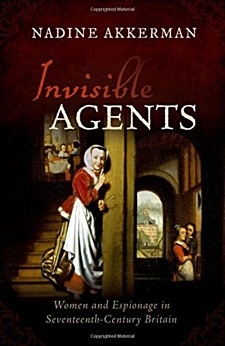 Nadine Akkerman has immersed herself in archives and letter collections, acting as a modern-day Spymistress to unearth plots and conspiracies that have long been hidden by history.
Nadine Akkerman has immersed herself in archives and letter collections, acting as a modern-day Spymistress to unearth plots and conspiracies that have long been hidden by history.
It would be easy for the modern reader to conclude that women had no place in the world of early modern espionage, with a few seventeenth-century women spies identified and then relegated to the footnotes of history.
If even the espionage carried out by Susan Hyde, sister of Edward Hyde, Earl of Clarendon, during the turbulent decades of civil strife in Britain can escape the historiographer’s gaze, then how many more like her lurk in the archives?
Nadine Akkerman’s search for an answer to this question has led to the writing of Invisible Agents, the very first study to analyse the role of early modern women spies, demonstrating that the allegedly-male world of the spy was more than merely infiltrated by women.
This compelling and ground-breaking contribution to the history of espionage details a series of case studies in which women – from playwright to postmistress, from lady-in-waiting to laundry woman – acted as spies, sourcing and passing on confidential information on account of political and religious convictions or to obtain money or power.
The struggle of the She-Intelligencers to construct credibility in their own time is mirrored in their invisibility in modern historiography.
Akkerman has immersed herself in archives, libraries, and private collections, transcribing hundreds of letters, breaking cipher codes and their keys, studying invisible inks, and interpreting riddles, acting as a modern-day Spymistress to unearth plots and conspiracies that have long remained hidden by history.
Nadine Akkerman is Reader in early modern English Literature at Leiden University and Visiting Fellow at All Souls College, Oxford. She is author of the critically acclaimed Invisible Agents: Women and Espionage in Seventeenth-Century Britain (OUP), and of The Correspondence of Elizabeth Stuart, Queen of Bohemia (OUP), the third and final volume of which will be published in 2020, and is currently writing the definitive biography of Elizabeth Stuart. She has also published extensively on women’s history, diplomacy, and masques, and curated several exhibitions, including the popular Courtly Rivals at the Haags Historisch Museum. In 2017 she was elected to The Young Academy of the Royal Netherlands Academy of Arts and Sciences, and received a Special Recognition Award from the World Cultural Council.
Invisible Agents
Women and Espionage in Seventeenth-Century Britain
Nadine Akkerman
Language: English
Oxford University Press
Hardcover
288 pages
Published: 12 July 2018
8 colour plates & 12 black and white images
234x156mm
ISBN-10: 0198823010
ISBN-13: 978-0198823018
£20.00
# new books
Nadine Akkerman:
Invisible Agents
fleursdumal.nl magazine
More in: #Biography Archives, *War Poetry Archive, - Book News, - Book Stories, Archive A-B, CRIME & PUNISHMENT, History of Britain, Tales of Mystery & Imagination, WAR & PEACE
Breton, Eluard, Aragon, Cocteau, Picasso, Chanel, Abel Gance, Anaïs Nin, Colette, Diego Rivera, Lacan, Desnos, Van Gogh, Sartre et Beauvoir, plus tard Jim Morrison et Patti Smith…
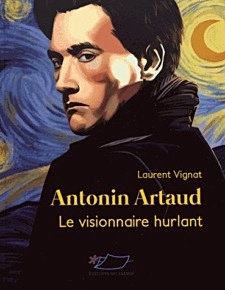 Ces noms jalonnent la trajectoire d’Antonin Artaud, comète colérique qui a irrigué l’avant-garde artistique et littéraire de l’entre-deux-guerres et irrigue encore notre époque.
Ces noms jalonnent la trajectoire d’Antonin Artaud, comète colérique qui a irrigué l’avant-garde artistique et littéraire de l’entre-deux-guerres et irrigue encore notre époque.
Par-delà le cliché de l’aliéné, du mythe du poète fou auteur d’une oeuvre monumentale, cette biographie s’attache à souligner le caractère novateur, toujours d’actualité, de son message : Artaud a imaginé le cinéma en relief, oeuvré à un profond renouvellement de l’art théâtral, rejeté le colonialisme européen, remis en cause les idéologies mortifères du XXe siècle, dénoncé le capitalisme et ses impératifs productivistes, esquissé l’altermondialisme.
Après neuf ans d’internement, il est aussi celui qui a fait vaciller la psychiatrie, ses catégories et sa thérapeutique des électrochocs. Plus que jamais, dans notre époque incertaine, Antonin Artaud est une voix à faire entendre. Une biographie à lire comme un roman.
Né en 1970, Laurent Vignat poursuit des études de lettres à la Sorbonne et devient professeur de français. Il publie son premier roman en 2006, après quelques textes épars publiés dans des revues.
Sur des carnets, il saisit les bizarreries d’une société qu’il juge de plus en plus folle, ses contemporains, des sourires, des tics de langage et des bribes de vie qui deviennent, à force de travail et d’obstination, des histoires.
Quand il n’écrit pas, il fait la classe ; il pédale en côte chalonnaise ; il lit ; il observe ; il regarde ses enfants grandir ; il écoute son épouse ; il suit les doigts graciles de son fils lorsqu’ils filent une impro sur le piano du salon ; il prépare un osso bucco, il s’endort avec Bach ou Jarrett dans les oreilles…
Auteur: Laurent Vignat
Antonin Artaud.
Le visionnaire hurlant
Editeur : Editions Du Jasmin
Collection: Signes de vie
Parution : 27/02/2018
Nombre de pages : 251
Dimensions: 15×19
ISBN: 978-2-35284-177-7
€ 16,00
# new books
Antonin Artaud
fleursdumal.nl magazine
More in: #Biography Archives, - Book News, Antonin Artaud, Archive A-B, Archive A-B, Archive U-V, Art & Literature News, Art Criticism, Artaud, Antonin, AUDIO, CINEMA, RADIO & TV, THEATRE
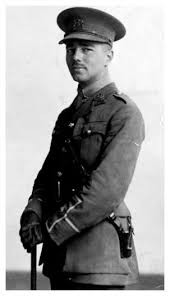
Dulce et Decorum Est
Bent double, like old beggars under sacks,
Knock-kneed, coughing like hags, we cursed through sludge,
Till on the haunting flares we turned our backs,
And towards our distant rest began to trudge.
Men marched asleep. Many had lost their boots,
But limped on, blood-shod. All went lame; all blind;
Drunk with fatigue; deaf even to the hoots
Of gas-shells dropping softly behind.
Gas! GAS! Quick, boys!—An ecstasy of fumbling
Fitting the clumsy helmets just in time,
But someone still was yelling out and stumbling
And flound’ring like a man in fire or lime.—
Dim through the misty panes and thick green light,
As under a green sea, I saw him drowning.
In all my dreams before my helpless sight,
He plunges at me, guttering, choking, drowning.
If in some smothering dreams, you too could pace
Behind the wagon that we flung him in,
And watch the white eyes writhing in his face,
His hanging face, like a devil’s sick of sin;
If you could hear, at every jolt, the blood
Come gargling from the froth-corrupted lungs,
Obscene as cancer, bitter as the cud
Of vile, incurable sores on innocent tongues,—
My friend, you would not tell with such high zest
To children ardent for some desperate glory,
The old Lie: Dulce et decorum est
Pro patria mori.
Wilfred Owen
(1893 – 1918)
Dulce et Decorum Est (Poem)
# Armistice of 11 November 1918 – 2018
fleursdumal.nl magazine
More in: Archive O-P, Archive O-P, Galerie des Morts, Galerie Deutschland, Histoire de France, Historia Belgica, History of Britain, Owen, Wilfred, WAR & PEACE
Was one who certainly was one really being living, was this one a complete one, did that one completely have it to do very well something that that one certainly would be doing if that one could be doing something.
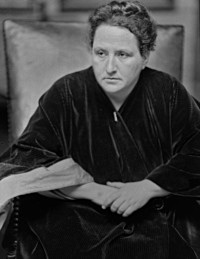 Yes that one was in a way a complete one, certainly he was one completely listening. Was that one one completely listening, was that one completely listening and certainly it was a pleasant thing if this one was one completely listening and certainly this one was completely listening and certainly it was a pleasant thing having this one listening and certainly if this one were one being one really completely listening it would then certainly be a completely pleasant thing.
Yes that one was in a way a complete one, certainly he was one completely listening. Was that one one completely listening, was that one completely listening and certainly it was a pleasant thing if this one was one completely listening and certainly this one was completely listening and certainly it was a pleasant thing having this one listening and certainly if this one were one being one really completely listening it would then certainly be a completely pleasant thing.
Was this one a complete one? Certainly this one was one being living. This one was one certainly going to be quite beautifully doing something if this one really did this thing and certainly this one would be sometime doing this completely beautiful thing if this one is really a complete one.
This one certainly is not one who is weakening, who is not continuing well in working. This one certainly is not at all a weak one, that is certain. This one is certainly feeling, in being one being living. This one is certainly an honest one and it is certainly a pleasant thing to have this one listening. Certainly this one does not do very much talking. Certainly this one is liking very well to be knowing what any one doing anything is doing, in what way any one doing anything is doing that thing. This one is one certainly loving, doing a good deal of loving, certainly this one has been completely excited by such a thing, certainly this one had been completely dreaming about such a thing. Certainly this one is one who would be very pleasant to very many in loving.
This one is perhaps one who is perhaps to be sometime a complete one. This one is perhaps one who is perhaps not to be ever a complete one. This one certainly was often listening and this was then certainly a very pleasant thing. This one was perhaps one completely listening, certainly this one was one who was listening and it was then a very pleasant thing, certainly if this one were one completely listening it would be then a completely pleasant thing.
This one certainly would be doing a very beautiful thing if this one did do that beautiful thing. This one would certainly be steadily working to be doing that beautiful thing. This one would certainly not be slackening, not be stopping going on working, not be weakening in working, in making that beautiful thing. This one would be making that beautiful thing. If this one were making that beautiful thing it would be a very satisfying thing. This one would certainly be one completely making a beautiful thing if this one did make a beautiful thing. This one was not a weak man, this man was not an unsteady man, this man was not an aspiring man, this man was one certainly going to be making a beautiful thing if he did make a beautiful thing. This one certainly was listening and this was a very pleasant thing, this one was certainly one going to be doing a beautiful thing if this one is one who is a complete one.
This one is certainly one to be doing a beautiful thing if this one is going to be doing that thing. It is not disturbing to be wondering about this one going to be doing the beautiful thing, not really disturbing to that one, not really disturbing to any one. This one is steadily working. This one is listening and that is a pleasant thing. If this one were complete in listening that would be a completely pleasant thing. This one certainly is one steadily working to be doing a beautiful thing, this one certainly will be doing a beautiful thing if this one does that beautiful thing. This one is very nearly completely needing to be knowing what any one is doing who is doing something, how any one who is doing something is doing that thing. Certainly if this one is one really completely listening and certainly perhaps this one is one completely listening then that is a completely pleasant thing.
Stein, Gertrude
(1874-1946)
Roche
fleursdumal.nl magazine
More in: Archive S-T, Archive S-T, Gertrude Stein, Stein, Gertrude
Kafka’s Other Prague: Writings from the Czechoslovak Republic examines Kafka’s late writings from the perspective of the author’s changing relationship with Czech language, culture, and literature—the least understood facet of his meticulously researched life and work.
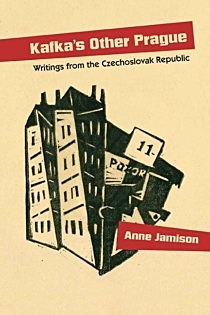 Franz Kafka was born in Prague, a bilingual city in the Habsburg Empire. He died a citizen of Czechoslovakia. Yet Kafka was not Czech in any way he himself would have understood. He could speak Czech, but, like many Prague Jews, he was raised and educated and wrote in German. Kafka critics to date have had little to say about the majority language of his native city or its “minor literature,” as he referred to it in a 1913 journal entry. Kafka’s Other Prague explains why Kafka’s later experience of Czech language and culture matters.
Franz Kafka was born in Prague, a bilingual city in the Habsburg Empire. He died a citizen of Czechoslovakia. Yet Kafka was not Czech in any way he himself would have understood. He could speak Czech, but, like many Prague Jews, he was raised and educated and wrote in German. Kafka critics to date have had little to say about the majority language of his native city or its “minor literature,” as he referred to it in a 1913 journal entry. Kafka’s Other Prague explains why Kafka’s later experience of Czech language and culture matters.
Bringing to light newly available archival material, Anne Jamison’s innovative study demonstrates how Czechoslovakia’s founding and Kafka’s own dramatic political, professional, and personal upheavals altered his relationship to this “other Prague.” It destabilized Kafka’s understanding of nationality, language, gender, and sex—and how all these issues related to his own writing.
Kafka’s Other Prague juxtaposes Kafka’s German-language work with Czechoslovak Prague’s language politics, intellectual currents, and print culture—including the influence of his lover and translator, the journalist Milena Jesenská—and shows how this changed cultural and linguistic landscape transformed one of the great literary minds of the last century.
Anne Jamison is an associate professor of English at the University of Utah.
Kafka’s Other Prague
Writings from the Czechoslovak Republic
by Anne Jamison
Publication Date June 2018
Northwestern University Press
Paper Text – $34.95
ISBN 978-0-8101-3720-2
Cloth Text – $99.95
ISBN 978-0-8101-3721-9
Categorie: Literary Criticism
208 pages
# new books
Kafka’s Other Prague
fleursdumal.nl magazine
More in: - Book News, - Book Stories, Archive K-L, Archive K-L, Franz Kafka, Kafka, Franz, Kafka, Franz
Thank you for reading Fleurs du Mal - magazine for art & literature